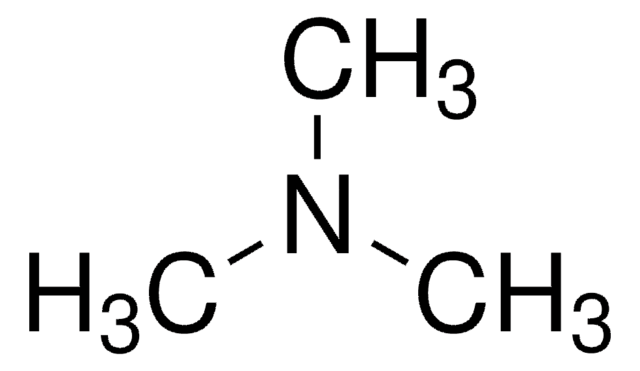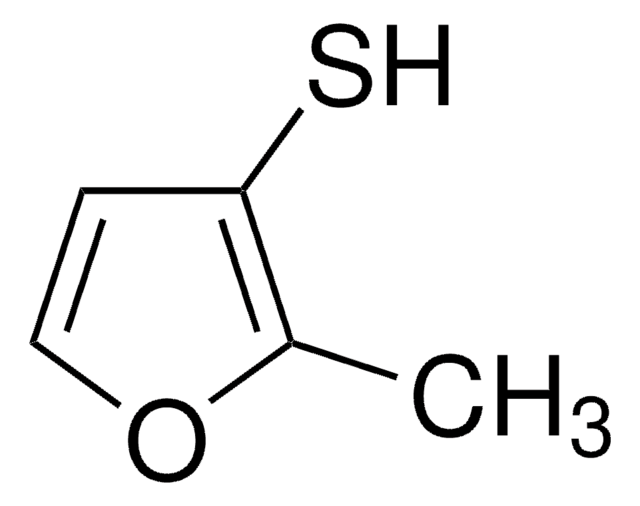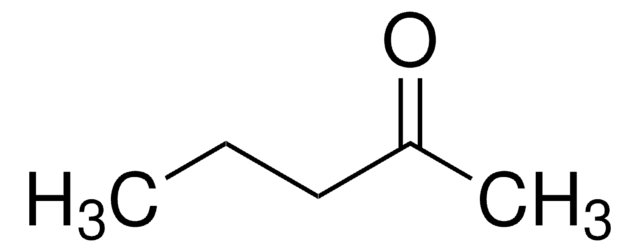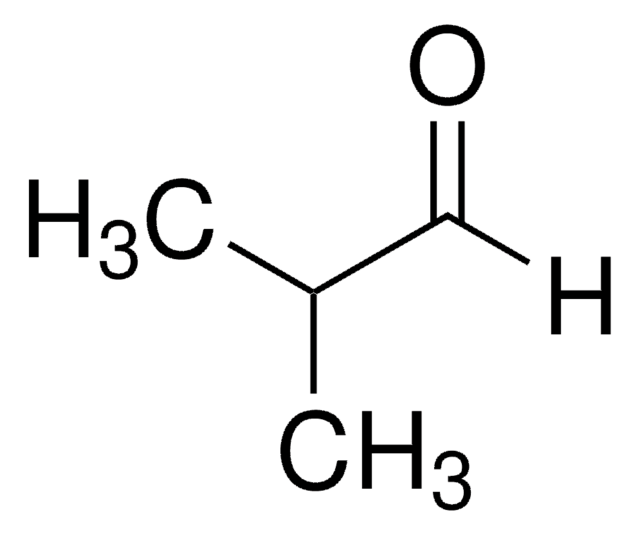W550132
Trimethylamine solution
25 wt. % in propylene glycol
About This Item
Recommended Products
biological source
synthetic
reg. compliance
FDA 21 CFR 117
concentration
25 wt. % in propylene glycol
refractive index
n20/D 1.356
application(s)
flavors and fragrances
Documentation
see Safety & Documentation for available documents
food allergen
no known allergens
Organoleptic
fishy
SMILES string
CN(C)C
InChI
1S/C3H9N/c1-4(2)3/h1-3H3
InChI key
GETQZCLCWQTVFV-UHFFFAOYSA-N
Looking for similar products? Visit Product Comparison Guide
Related Categories
Signal Word
Danger
Hazard Statements
Precautionary Statements
Hazard Classifications
Acute Tox. 4 Inhalation - Eye Dam. 1 - Flam. Liq. 2 - Skin Irrit. 2 - STOT SE 3
Target Organs
Respiratory system
Storage Class Code
3 - Flammable liquids
WGK
WGK 1
Flash Point(F)
-4.0 °F - closed cup
Flash Point(C)
-20 °C - closed cup
Personal Protective Equipment
Choose from one of the most recent versions:
Already Own This Product?
Find documentation for the products that you have recently purchased in the Document Library.
Global Trade Item Number
| SKU | GTIN |
|---|---|
| W550132-1KG | 4061837542824 |
| W550132-SAMPLE | 4061838194688 |
Our team of scientists has experience in all areas of research including Life Science, Material Science, Chemical Synthesis, Chromatography, Analytical and many others.
Contact Technical Service







